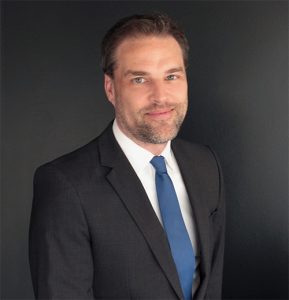Facelift
Very few people are blessed with looking eternally young. An unhealthy lifestyle at a young age can quickly catch up with us, but genetics also play a big part. If you don’t see any changes in your late 20s, the first signs of the times will become visible by your mid-30s at the latest. Good facial treatments and fillers often help during this time. However, if the face seems increasingly tired and the affected person perceives it as annoying, a facelift can be a suitable method to make the face shine again.
Shortly
Shortly
Operation duration
2-4 hours
Hospital stay
1-2 nights
Anaesthesia
local or general anesthesia
Socially acceptable
within a few days to 2 weeks
Control examination
2-3 appointments
Durability
permanent
Look up to 15 years younger – this is possible with a face lift. From a certain age, each of us has to struggle with wrinkles and decreasing elasticity Some still look great as they get older, others have tired eyes and small wrinkles on their foreheads that can understandably be annoying. In this case, a face lift can conjure up freshness and youthfulness in the face. Our doctors pay attention to a harmonious overall picture and naturalness.
Operation
Depending on the desired result, starting position and focus, different techniques are used. In addition to simply tightening the skin, it may also be necessary to model the underlying facial layer. In addition to the lifting, a treatment with hyaluronic acid, autologous fat or Botox or even liposuction can be useful.
After the operation
After the operation, a head bandage is applied, which promotes healing. Gestures and facial expressions are not restored in the first few days after the operation. There may also be slight pain and hematomas. Keeping your head straight and moving as little as possible can minimize swelling. The threads are removed after about 10 days to 2 weeks. The patients have a radiant, youthful appearance again.
Institute for Plastic and Aesthetic Surgery
Institute for Plastic and Aesthetic Surgery
The Institute for Plastic and Aesthetic Surgery at the Glückstadt Clinic deals with functional, cosmetic, shape-changing and reconstructive procedures.
In this area, surgical procedures are performed for both aesthetic and functional reasons.
In order to work as a doctor in this field in Germany, you must complete training as a specialist in plastic and aesthetic surgery.
Career
After completing his medical studies at the University of Kiel, Dr. Bönke initially worked there and completed basic surgical training in cardiac and vascular surgery at the Schleswig-Holstein University Hospital in Kiel. In 2015, he then switched to the clinic for plastic and hand surgery with a center for severe burns at the St. Georg Hospital in Leipzig. In 2017 he followed Prof. Dragu to the University Hospital in Dresden, where he played a key role in founding the Department of Plastic and Hand Surgery, where he most recently worked as senior physician. Since 2023 Dr. Bönke leads together with Prof. Dr. Said the Institute for Plastic and Aesthetic Surgery at Glückstadt Hospital.
Since 2015 Dr. Bönke works exclusively in plastic and aesthetic surgery. In addition to the reconstruction and restoration of the body shape using free tissue transfer and hand surgery, he specialized in body shaping and tightening operations after weight loss.
Dr. Bönke is a specialist in plastic and aesthetic surgery and a member of the German Society for Plastic, Reconstructive and Aesthetic Surgery (DGPRÄC). He also has an additional qualification in hand surgery.
Indications
Abdominoplasty / tummy tuck
thigh lift
upper arm lift
body lift
liposuction
Liposuction for lipoedema
scar corrections
Local flaps
(Free flap plastics)
Hand Surgery:
Secondary tendon reconstruction
Tendon transfer / tendon rearrangement
Nerve sutures / nerve reconstruction / nerve transplant
Annular ligament release in tendovaginitis stenosans (snap fingers)
extensor tendon cleavage
Nerve decompression (e.g. carpal tunnel, loge de gyon, sulcus ulnaris)
Ganglion
M. Dupuytren
Was unsere patienten sagen
Unsere Patienten erleben medizinische Spitzenqualität in einem exklusiven Ambiente. Persönliche Betreuung, modernste Technik und luxuriöse Patientensuiten schaffen eine Atmosphäre, die den Klinikaufenthalt neu definiert.
Lesen Sie, was unsere Patienten über ihre Erfahrungen berichten.
WHAT OUR PATIENTS SAY
Our patients experience top-quality medical care in an exclusive setting. Personalized care, state-of-the-art technology, and luxurious patient suites create an atmosphere that redefines the hospital experience.
Read what our patients say about their experiences.
CE QUE DISENT NOS PATIENTS
Nos patients bénéficient de soins médicaux de haute qualité dans un cadre exclusif. Des soins personnalisés, une technologie de pointe et des suites luxueuses créent une atmosphère qui redéfinit l’expérience hospitalière.
Lisez ce que nos patients disent de leurs expériences.
COSA DICONO I NOSTRI PAZIENTI
I nostri pazienti beneficiano di cure mediche di altissima qualità in un ambiente esclusivo. Assistenza personalizzata, tecnologie all’avanguardia e suite di lusso per i pazienti creano un’atmosfera che ridefinisce l’esperienza ospedaliera.
Leggi cosa dicono i nostri pazienti delle loro esperienze.
LO QUE DICEN NUESTROS PACIENTES
Nuestros pacientes reciben atención médica de primera calidad en un entorno exclusivo. Atención personalizada, tecnología de vanguardia y suites de lujo crean un ambiente que redefine la experiencia hospitalaria.
Lea lo que nuestros pacientes dicen sobre sus experiencias.
OUR Hospital AND DOCTORS ARE LICENSED AND SUPERVISED BY



OUR Hospital AND DOCTORS ARE LICENSED AND SUPERVISED BY






